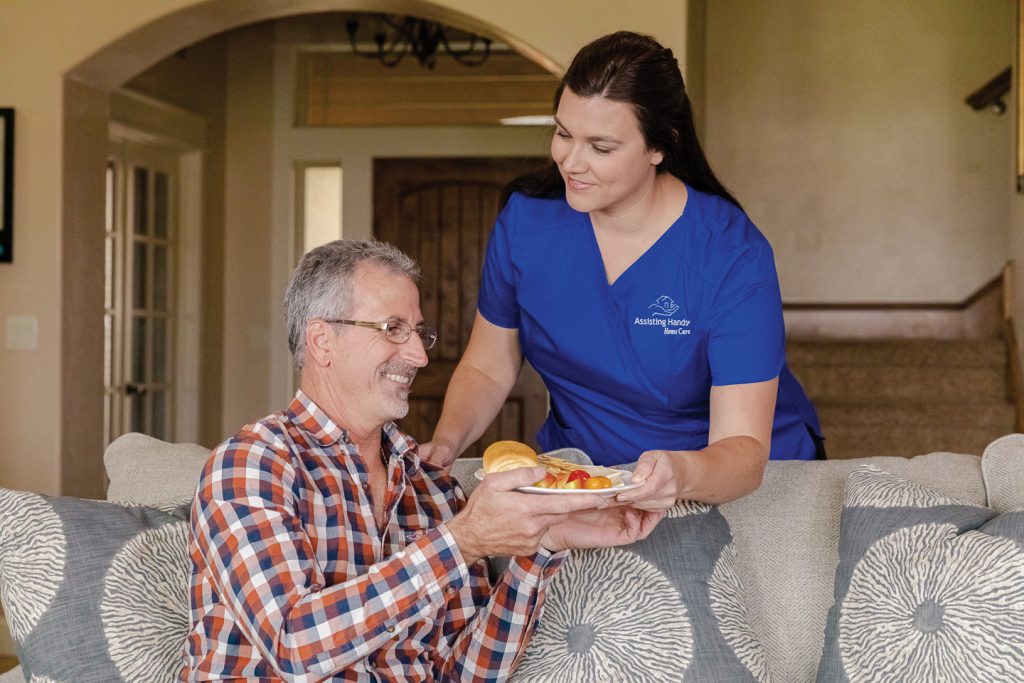
Prostate problems are common in men older than 50. In fact, some form of prostate disease affects three million American men. Although the prostate normally enlarges with age, excessive growth can lead to a number of health issues. Here’s a look at prostate issues among elderly men.
What is the role of the prostate?
A small gland known as the prostate helps to produce semen. The prostate is located beneath the bladder and in front of the rectum. The gland wraps around the tube that directs urine and semen out of the body. In young men, the prostate is the size of a walnut.
Growth of the prostate is normal as males age. The enlarged prostate is a natural result of changes to sex hormone levels that coincide with aging. Some men experience few or no symptoms when the prostate grows too large. Others, however, can experience bothersome symptoms.
Urinary problems can be an adverse consequence when a prostate grows too large. Urinary issues can also develop when the prostate becomes infected or cancerous. Noncancerous prostate issues, such as benign prostatic hyperplasia and prostatitis, commonly affect men over the age of 50.
What are common prostate issues?
1. Benign Prostatic Hyperplasia (BPH)
Benign prostatic hyperplasia most commonly affects men over 50. The disease affects 60 percent of men over 60 and more than 80 percent of men over 80. These statistics make benign prostatic hyperplasia one of the most common health problems to affect elderly men.
Benign prostatic hyperplasia occurs when the prostate grows to such an excessive size that it begins to compress the urethra; as a result of the compression, the flow of urine is blocked or slowed. While noncancerous, BPH can cause symptoms that require urgent medical intervention.
2. Acute Bacterial Prostatitis
A bacterial infection can cause the sudden onset of acute bacterial prostatitis, which is a painful inflammation of the prostate gland. When prostatitis is acute, it emerges suddenly yet resolves quickly with treatment, such as with antibiotics or medications that help with discomfort.
3. Chronic Bacterial Prostatitis
Prostatitis can also be chronic, developing gradually, recurring, and persisting for months. Due to the fact that chronic bacterial prostatitis returns again and again, the condition can be difficult to treat. Taking antibiotics for a prolonged duration can help in some cases.
4. Chronic Prostatitis
A fourth prostate problem is chronic prostatitis, also called chronic pelvic pain syndrome. Chronic prostatitis causes pain in the lower back or groin. Effective treatment options a senior’s physician can recommend include lifestyle changes, a combination of medications, and surgery.
Prostatitis is common in men under 50 but also affects older men. It is estimated that eight percent of males will suffer from prostatitis at some point in their lives. A senior who experiences prostate symptoms, in addition to chills, fever, or pain, is advised to see a physician immediately.
5. Prostate Cancer
Prostate cancer is common in American men, and those over 50 have a greater chance of developing this disease. Prostate cancers usually grow slowly and cause no symptoms. On the other hand, some prostate cancers are aggressive and spread rapidly to other parts of the body.
What are symptoms of prostate issues?
When prostate symptoms emerge, the senior is advised to see a doctor immediately. A senior with prostate issues can experience a frequent urge to urinate, blood in the semen or urine, or pain and burning during urination. He may also need to wake up several times at night to urinate.
Dribbling of urine can occur when prostate issues arise. Ejaculation may be painful. Plus, the aging male may feel stiffness or pain in his lower back, hips, pelvic or rectal areas or upper thighs. At the doctor’s office, the physician will ask about the severity of symptoms and medical history.
What diagnostic tests are done for prostate disease?
Medical tests for benign prostatic hyperplasia include a digital rectal examination or urinalysis to detect a possible urinary tract infection. Blood tests may be done to check the level of prostate-specific antigen, which may be high in men with BPH. An ultrasound shows the size of the prostate gland.
Similar tests are conducted when prostatitis or prostate cancer is suspected. However, a prostate biopsy performed by a urologist may be necessary when the tests show the senior may have cancer. Small tissue samples are taken from the prostate gland to look for cancer cells.
What are treatment options for prostate problems?
Surveillance may be an option when prostate cancer does not cause immediate problems. The doctor will check for changes to the senior’s condition and recommend treatment if the cancer starts to grow. Surgery, radiation therapy, and hormone therapy are treatment options for prostate cancer.
Treatments for prostate issues include minor lifestyle changes, like avoiding drinking fluids before bedtime, and medications, such as alpha blockers—which help seniors with BPH relax muscles in the prostate and bladder and allow urine to flow more easily. Surgery may also be an option.
Seniors who show symptoms of prostate issues should undergo a medical examination right away. Assisting Hands Home Care providers will transport the senior to the doctor’s office. Upon diagnosis, our caregivers will provide in-home help so that the senior remains fully supported.

Professional caregivers from our senior home care agency discreetly assist seniors with personal hygiene tasks, including toileting, bathing, and grooming. We help seniors who suffer from prostate issues manage lifestyle choices; for example, we limit the senior’s caffeine intake, which worsens symptoms.
Care recipients who are prescribed alpha blockers to help with prostate issues will receive timely medication reminders from our caregivers. If your loved one elects to have surgery, Assisting Hands Home Care provides reliable after-surgery care and respite care options.
Families with elderly loved ones living in Waukesha, Milwaukee, Fox Point, Whitefish Bay, Wisconsin, and the surrounding communities are encouraged to call Assisting Hands Home Care for the best in quality senior care. We visit the senior’s home to conduct an assessment and develop a customized plan to meet all nonmedical care needs.
















